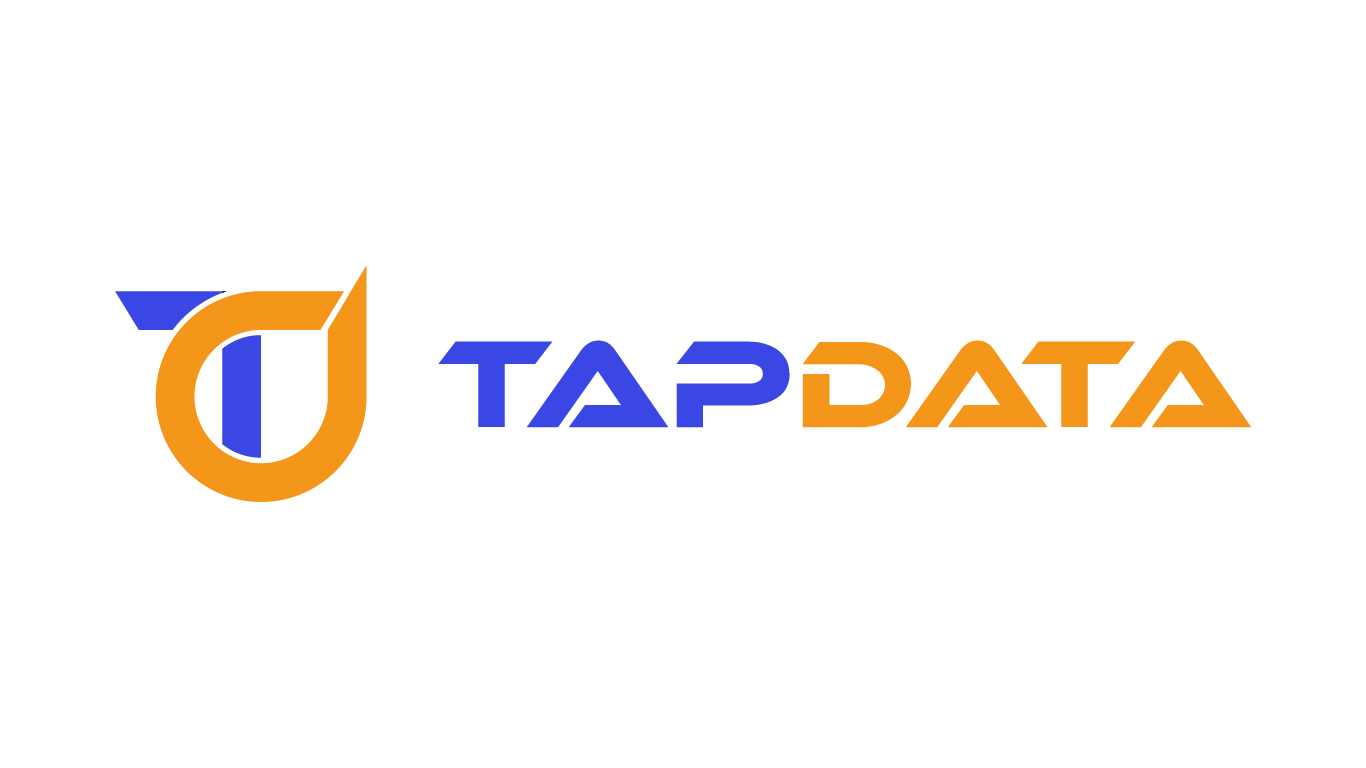Emerging Trends Shaping the Future of Data Engineer Careers

The role of a data engineer has transformed into one of the most critical positions in modern organizations, making a data engineer's career increasingly vital. As businesses increasingly rely on data to drive decisions, your expertise becomes indispensable. However, the demand for skilled professionals in a data engineer's career far exceeds the supply, with a projected global shortage of 10.5 million data engineering roles by 2030. This gap highlights the growing significance of your work and the opportunities it presents.
Emerging trends like real-time data processing and cloud-native technologies are reshaping the field, impacting a data engineer's career trajectory. These innovations empower you to build scalable systems, improve data quality, and enhance collaboration. Yet, adapting to these changes is not optional—it’s essential. By staying ahead of these trends, you can future-proof your data engineer's career and thrive in this dynamic landscape.
💡 Did you know? Poor data quality costs organizations $15 million annually. Your role as a data engineer is pivotal in solving this challenge.
The Evolving Role of Data Engineers
Transitioning from Infrastructure to Strategic Roles
Your role as a data engineer has evolved far beyond managing traditional databases and data warehouses. Today, you focus on building efficient data pipelines and ensuring data security. This shift reflects the rise of big data technologies and cloud computing. These advancements allow you to handle massive volumes of data while implementing strategic practices. You are no longer just a technician; you are a strategist. By designing systems for real-time data analysis and ensuring compliance with privacy regulations, you directly influence business decisions. This transformation highlights the growing demand for your expertise in the data engineer job market.
Emphasis on Automation and Monitoring
Automation is revolutionizing the way you manage data pipelines. As companies scale, manual processes become unsustainable. Automating tasks like data validation, anomaly detection, and system monitoring saves time and ensures accuracy. AI-driven solutions now streamline pipeline management and maintain data quality. Tools that provide immediate notifications through emails or Slack help you monitor systems effectively. This emphasis on automation not only simplifies your work but also enhances the reliability of data systems. The demand for these skills is evident in the increasing number of data engineer job postings that prioritize automation expertise.
Collaboration Across Teams for Business Impact
Your ability to collaborate with analysts, data scientists, and business teams is crucial. By working together, you ensure that the data infrastructure aligns with the company’s goals. This collaboration enhances the impact of data engineering projects. For example, when you tailor systems to meet specific business needs, you enable teams to extract actionable insights. This cross-functional approach strengthens your role in the organization and boosts the data engineer job outlook. It also underscores the importance of communication and teamwork in the data engineer job market.
🌟 Tip: Embrace collaboration as a way to amplify your impact. Strong partnerships lead to better outcomes and greater recognition in your career.
Key Trends Shaping the Future of Data Engineering Careers

Cloud-Native Technologies and Platforms
Cloud-native technologies are revolutionizing how you approach data engineering. These platforms offer scalability, flexibility, and cost efficiency, enabling you to build robust data pipelines and storage solutions optimized for cloud environments. By transitioning to cloud computing, you can leverage pre-built services and automated infrastructure management, allowing you to focus on essential tasks like improving data quality and deriving insights.
Key tools like Kubernetes and serverless computing are becoming indispensable. Managed services such as AWS Glue, Google BigQuery, and Azure Synapse simplify your responsibilities by handling server maintenance and scaling automatically. These advancements free you to concentrate on creating value through data engineering. Cloud-native platforms also embrace microservices and automation principles, giving you the agility to adapt to evolving business needs.
🌟 Tip: Mastering cloud computing technologies will future-proof your career and position you as a leader in data engineering.
Real-Time Analytics and Data Processing
Real-time data processing is no longer a luxury—it’s a necessity. Businesses rely on your expertise to enable informed decision-making and improve operational efficiency. By implementing real-time analytics, you empower organizations to monitor KPIs continuously, address operational issues promptly, and enhance customer experiences.
For example, real-time data allows teams to detect anomalies like fraud instantly, reducing risks and costs. It also helps businesses adapt to changing customer demands, unlocking new opportunities. Tools like TapData, Kafka and Spark Streaming are essential for building real-time data pipelines that deliver immediate insights.
💡 Did you know? Real-time analytics can streamline decision-making and give businesses a competitive edge by enabling swift, accurate responses to market changes.
Data Observability and Pipeline Monitoring
As data pipelines grow more complex, observability becomes critical. You face challenges like managing data overload, balancing privacy concerns, and distinguishing valuable insights from noise. Modern data observability tools address these issues by integrating AI and machine learning for anomaly detection and predictive insights.
Adopting open standards ensures interoperability, while enhanced security features help you meet compliance requirements. Tools that integrate with CI/CD pipelines allow you to identify and resolve issues early, improving reliability. By mastering these technologies, you can ensure data quality and maintain efficient, cost-effective systems.
Advancement Type | Description |
|---|---|
Increased Use of AI and Machine Learning | Automates anomaly detection and predicts issues, providing deeper insights for strategic intervention. |
Adoption of Open Standards | Ensures interoperability and reduces vendor lock-in, simplifying integration across systems. |
Focus on Cost Management | Offers better control over data collection and storage to optimize observability budgets. |
Enhanced Security and Compliance | Provides robust encryption, access controls, and compliance tracking for regulatory requirements. |
🌟 Tip: Embrace data observability tools to stay ahead of trends and ensure your data pipelines remain reliable and efficient.
Privacy, Security, and Compliance in Data Engineering
Privacy, security, and compliance have become essential pillars of data engineering. As a data engineer, you play a critical role in safeguarding sensitive information and ensuring your organization adheres to global regulations. With the rise of data breaches and privacy concerns, businesses rely on you to build systems that prioritize trust and transparency.
Several regulations shape how you handle data. Frameworks like GDPR emphasize consent and security, while CCPA focuses on consumer rights, such as the ability to access or delete personal data. In Singapore, PDPA ensures organizations manage personal data responsibly. These regulations demand explicit consent for data processing, regular audits, and robust governance measures. Staying compliant requires you to stay informed and proactive.
To meet these challenges, you must adopt a strategic approach. Start by understanding the intricacies of regulations like GDPR, CCPA, and HIPAA. Collaborate with legal and security teams to align your systems with compliance requirements. Implementing strong encryption, access controls, and monitoring tools ensures data remains secure. By fostering a culture of compliance, you can help your organization avoid costly penalties and build customer trust.
Training your team on privacy policies is another key step. A well-informed workforce reduces risks and strengthens your compliance efforts. Additionally, staying updated on evolving regulations and industry trends keeps you ahead of the curve. Developing a comprehensive privacy strategy not only protects your organization but also positions you as a leader in data engineering.
🌟 Tip: Treat compliance as an opportunity to showcase your expertise. By mastering privacy and security, you can elevate your career and contribute to a safer digital world.
Essential Skills and Tools for a Data Engineer's Career
Technical Skills for Future Success
Mastery of Cloud Platforms (AWS, Azure, GCP)
Cloud platforms have become the backbone of modern data workflows. As a data engineer, mastering platforms like AWS, Azure, and Google Cloud is essential for building scalable and efficient data pipelines. These platforms offer tools that simplify data ingestion, storage, and processing. For example, AWS Glue and Google BigQuery allow you to automate ETL processes, saving time and improving data quality. By gaining expertise in these platforms, you position yourself as a leader in the modern data stack.
Expertise in Data Integration Tools (dbt, Fivetran, TapData)
Data integration tools are critical for managing the flow of data across systems. Tools like dbt, Fivetran, and TapData streamline ETL processes, enabling you to focus on optimizing data pipelines. These tools help you ensure data quality by automating transformations and validations. With businesses relying on real-time data analytics, your ability to integrate data seamlessly becomes a valuable asset.
Proficiency in Real-Time Frameworks (Kafka, Spark Streaming)
Real-time frameworks like Kafka and Spark Streaming are revolutionizing data engineering. These tools allow you to process data as it arrives, enabling faster decision-making. For instance, you can use Kafka to build data pipelines that detect anomalies in real time, reducing risks and improving operational efficiency. By mastering these frameworks, you stay ahead of the curve and meet the growing demand for real-time data workflows.
💡 Tip: Focus on foundational skills like SQL and Python while exploring advanced tools to future-proof your career.
Soft Skills for Career Growth
Communication and Collaboration
Your ability to communicate complex data concepts in simple terms is vital. Strong verbal and written communication skills help you explain data workflows to non-technical teams. Collaboration with analysts, data scientists, and business leaders ensures your work aligns with organizational goals. These skills not only enhance your impact but also open doors to leadership opportunities.
Problem-Solving and Adaptability
The dynamic nature of data engineering requires you to adapt quickly. Whether you're troubleshooting data pipelines or implementing a new data mesh architecture, problem-solving skills are crucial. Adaptability allows you to respond to changing technologies and market demands, keeping your career on an upward trajectory.
🌟 Tip: Embrace challenges as opportunities to grow. Your ability to adapt and solve problems sets you apart in the field.
Staying Ahead with Emerging Technologies
Staying competitive means keeping up with emerging technologies. Commit to lifelong learning by exploring big data tools like Hadoop and Spark. Familiarize yourself with automation tools such as Apache Airflow to streamline workflows. Networking through industry forums and conferences helps you stay informed about the latest trends. By mastering DataOps principles, you can optimize data pipelines and drive innovation in your organization.
💡 Did you know? Continuous learning not only enhances your skills but also boosts your confidence in tackling future challenges.
Challenges and Opportunities for Data Engineers

Navigating Complex Data Architectures
As a data engineer, you face the challenge of managing increasingly complex data architectures. Data silos often limit visibility, making it difficult to access and integrate information. Dynamic data schemas require constant adjustments, while scalability becomes a pressing issue as businesses grow. You must also ensure data quality and security, as poor data quality can lead to significant financial losses and compliance risks.
To overcome these challenges, you can adopt strategies that simplify your workflows. Real-time data syncing tools like Apache Kafka or Amazon DynamoDB Streams help you manage disparate data sources effectively. Automation tools streamline testing and integration processes, reducing manual effort. Continuous monitoring ensures data integrity, while robust error-handling mechanisms address issues proactively. By staying informed about emerging tools and best practices, you can navigate these complexities with confidence.
🌟 Tip: Embrace training and upskilling to stay ahead of evolving data architectures. Your expertise will drive innovation and efficiency in your organization.
Balancing Automation with Human Oversight
Automation has transformed data engineering by handling repetitive tasks like data cleaning and validation. However, you must balance automation with human oversight to ensure data quality and reliability. Automated checks can monitor data pipelines and alert you to potential issues, but human intervention is essential for decision-making and auditing results.
For example, companies like Amazon combine automation with human oversight to manage inventory and fulfillment. Automated systems handle routine tasks, while human workers verify accuracy and resolve discrepancies. You can adopt similar practices by defining roles for automation and oversight, establishing criteria for evaluating results, and implementing feedback loops. Regular reviews and audits will help you maintain high standards in your data workflows.
💡 Did you know? Combining automation with human expertise enhances data quality and customer satisfaction, creating a competitive edge for your organization.
Opportunities in Data Governance and Observability
Data governance and observability present exciting opportunities for you to make a significant impact. By ensuring data quality, you enable organizations to make informed decisions. Observability tools allow you to detect issues proactively, troubleshoot faster, and maintain transparency in data pipelines. Understanding data lineage improves collaboration among teams and ensures compliance with service-level agreements.
You can leverage these opportunities by adopting advanced observability tools and practices. Focus on integrating diverse data sources, managing dynamic schemas, and scaling systems efficiently. By addressing these challenges, you position yourself as a leader in data engineering and contribute to a culture of accountability and innovation.
🌟 Tip: Treat data governance as a chance to showcase your skills. Your efforts will build trust and drive success in your organization.
Preparing for the Future of Data Engineering Careers
Continuous Learning and Skill Development
To thrive as a data engineer, you must embrace continuous learning. The field of data engineering evolves rapidly, and staying updated ensures you remain competitive. Dedicate time regularly to explore industry trends and advancements. Set achievable learning goals and break them into smaller tasks to maintain focus and motivation. A consistent learning routine helps you retain knowledge effectively.
Online resources like courses and tutorials provide access to the latest tools and techniques. Certifications validate your skills and demonstrate your commitment to growth. Seeking feedback from mentors and peers ensures your goals align with industry standards. Reflecting on your progress allows you to adjust your approach and improve continuously. By prioritizing skill development, you prepare yourself for the future and open doors to new opportunities.
🌟 Tip: Treat learning as a journey, not a destination. Every step forward strengthens your expertise and confidence.
Building a Personal Brand in the Data Community
Your personal brand sets you apart in the competitive world of data engineering. Sharing your knowledge through articles and tutorials establishes you as an expert. Contributing to open-source projects showcases your skills and values. Platforms like LinkedIn and GitHub are excellent for maintaining an active online presence. Engaging in industry discussions and sharing insights on trends highlight your thought leadership.
Participating in forums allows you to solve problems and offer expertise. These activities not only build your reputation but also connect you with like-minded professionals. A strong personal brand positions you as a leader in the data community and attracts exciting career opportunities.
💡 Did you know? A well-crafted personal brand can make you the go-to expert in your field, boosting your visibility and credibility.
Networking and Mentorship for Career Growth
Networking and mentorship play a vital role in advancing your career. Learning from peers enhances your knowledge and skills. Engaging with mentors provides tailored guidance and support. Mentoring others improves your leadership and communication abilities. Peer-mentoring groups foster mutual support and the sharing of best practices.
Approach mentors who inspire you and establish respectful relationships. Seek their feedback regularly to refine your career path. Joining online communities and networks connects you with professionals who share your interests. These connections create opportunities for collaboration and growth. By investing in networking and mentorship, you build a strong foundation for your future in data engineering.
🌟 Tip: Surround yourself with people who inspire and challenge you. Their insights and encouragement will propel you toward success.
The role of a data engineer has transformed significantly, driven by trends like cloud computing, AI, and real-time data processing. These advancements have improved operational efficiency and decision-making while boosting data quality by 25%. To thrive in your data engineer's career, adaptability is essential. Employers value professionals who embrace change and continuously learn. By mastering emerging tools and technologies, you can secure a promising future. This proactive approach not only enhances your skills but also positions you for a competitive data engineer salary and long-term success in your data engineering career.
See Also
Understanding Data Integration Principles and Definitions for 2025
Best Data Integration Solutions for Efficient Workflows in 2024
Key Data Management Trends and Innovations to Follow in 2025

